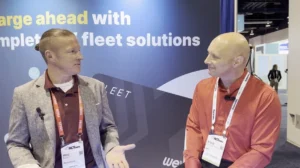If Federal Transit Funding Falls Short, Will the Private Sector Fill the Gaps?
Key Points:
- A lack of a dedicated funding as well as additional expansion over the years has given Metrorail problems.
- Transit agencies have been relying on special equipment made only by a few US companies.
- Technical support from manufactures as well as organized safety culture that includes procedures for employees to follow are needed in order to improve the process.
Commentary:
The US’ urban centers continue to explode in population size decade after decade, and with more people comes more traffic. Many cities either rely heavily on public transit or try to incentivize the use of it to cut down on congestion. In D.C, for example, the rail and bus system serves a population of four million passengers. Recently, D.C. commuters have faced delays after Metrorail decommissioned nearly 60 percent of its rail fleet to investigate a derailment, which the Safety Commission attributed to a defective axle. MarketScale contacted Matt Dean, graduate student at the Cockrell School of Engineering at the University of Texas to give his assessment on if this reflects the net effect of municipalities’ investments, or disinvestments, in public transit over the years.
Abridged Thoughts:
If Metrorail or other agencies can’t create a safe, resilient system, then it’s no surprise riders will look elsewhere, and so private sector ride hail companies may attract customers in the short term. Prices will rise as taxi companies wane and investors look for profits after years of subsidizing growth in this market. Since road space is limited, the growth of ride hail companies is limited to passengers’ willingness to sit-in traffic. And if public transit can’t safely provide cost effective service for the masses, then they may have to adopt innovative partnerships with the private sector. Of course, there’s a lot of competition right now in the mobility space, and the public should expect the sort of blurring of the lines between public transit and private companies in the years to come.









